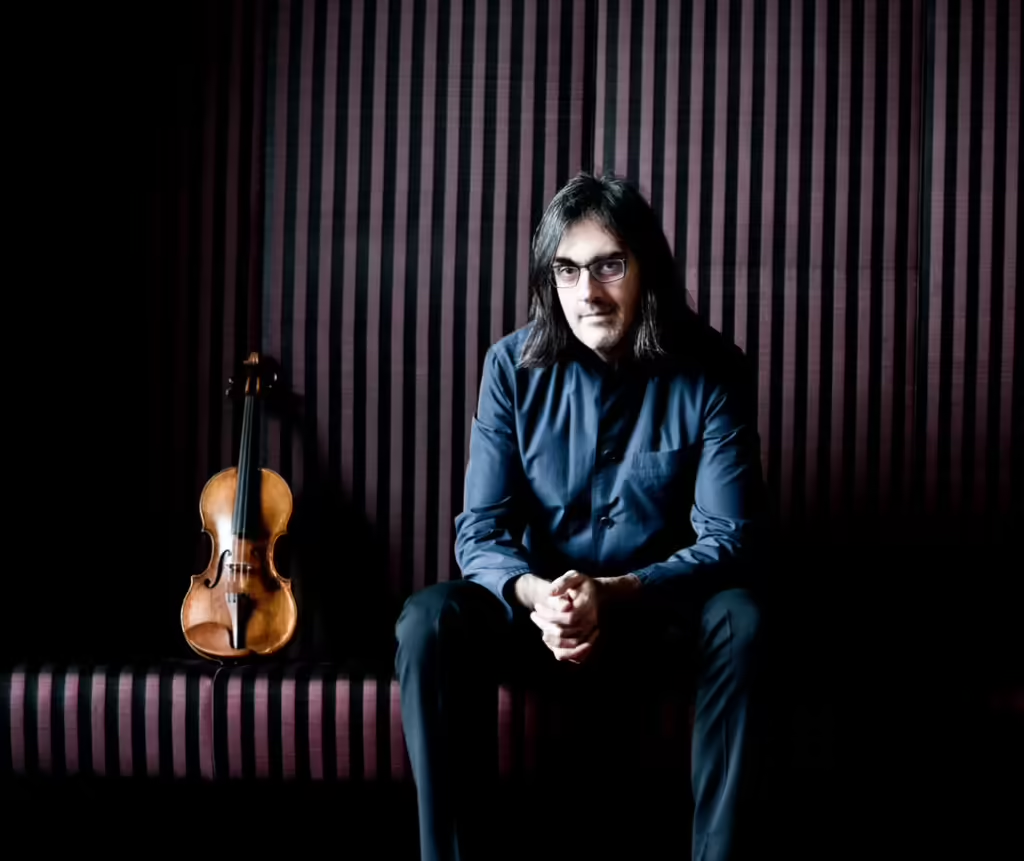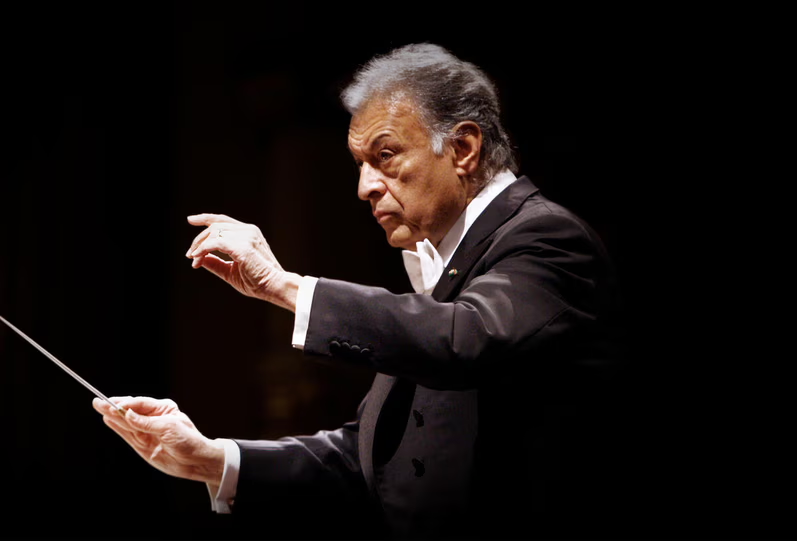
At 88 years of age, Zubin Mehta is one of only a few active conductors who are either approaching their 100th year or are already in their 100th year (e.g., Herbert Blomstedt). Although he is frail when he walks and must sit when he conducts, the frailty stops there. Once seated, Mehta still gets the music he wants out of the musicians, and he did just that on Saturday night at Walt Disney Concert Hall as he conducted two major works by Brahms, the Violin Concerto in D major, Op. 77 with the Greek violinist Leonidas Kavakos as soloist and the Symphony No. 2 in D major, Op. 73.
Brahms composed both these works within about a year of each other while he was on Lake Wörth in Portschach, Austria. Brahms was often inspired by nature, and these two compositions are no exception. Both are in the key of D major and, thus, on the uplifting side, although the second symphony does have its brooding moments. Both works are filled with melodies that one cannot help but hum or sing. And, of course, both are masterpieces.
Mehta, who was music director of the LA Phil from 1962 until 1978, frequently returns and is always greeted with love and admiration. Saturday night was no exception. As Mehta slowly strode on stage with Kavakos, he was greeted with applause, cheers and a standing ovation by many. And Mehta returned the love with two heartfelt and moving performances of the Brahms masterpieces.

Mehta’s tempo in both works was on the slower side, but not too slow to be dragging. In fact, the slightly slower tempo allowed for some harder-to-hear details, which can be lost at faster tempos, to be more audible. In the violin concerto, it was clear that Kavakos was leading the way. He slowed down certain parts, especially in the cadenza, for effect, and it worked.
At the conclusion, Mehta remained in his chair on the podium while Kavakos took his bows and then encouraged the Greek to play an encore, Bach’s Partita No. 3 for Solo Violin in E Major, III. Gavotte en Rondeau, which Kavakos put his own spin on with some rubato and dynamic twists.
The second half of the concert was devoted to the second symphony. Mehta’s interpretation was stately and solid with no frills, exactly the way Brahms intended it; and the orchestra responded to their old and revered music director with sensitivity and passion. And it was great to see the trombones and tuba playing almost from the very start and in every movement, unlike Brahms’ other symphonies where the trombones have to wait until the fourth movement to play.
The Phil is looking much younger and more diverse these days, and that will change even more when Principal Concertmaster Martin Chalifour retires next year and when First Associate Concertmaster Nathan Cole assumes his new full-time position as concertmaster of the Boston Symphony Orchestra. Of course, the changes don’t stop there because if the past is any predictor of the future, the Phil will hire a young and possibly female music director when Dudamel leaves for the New York Philharmonic in 2026. If the playing of the current orchestra is any indication, the LA Phil will retain its world-class standing well into the 21stcentury.
—Henry Schlinger, Culture Spot LA
For information about upcoming concerts, visit www.laphil.com.





